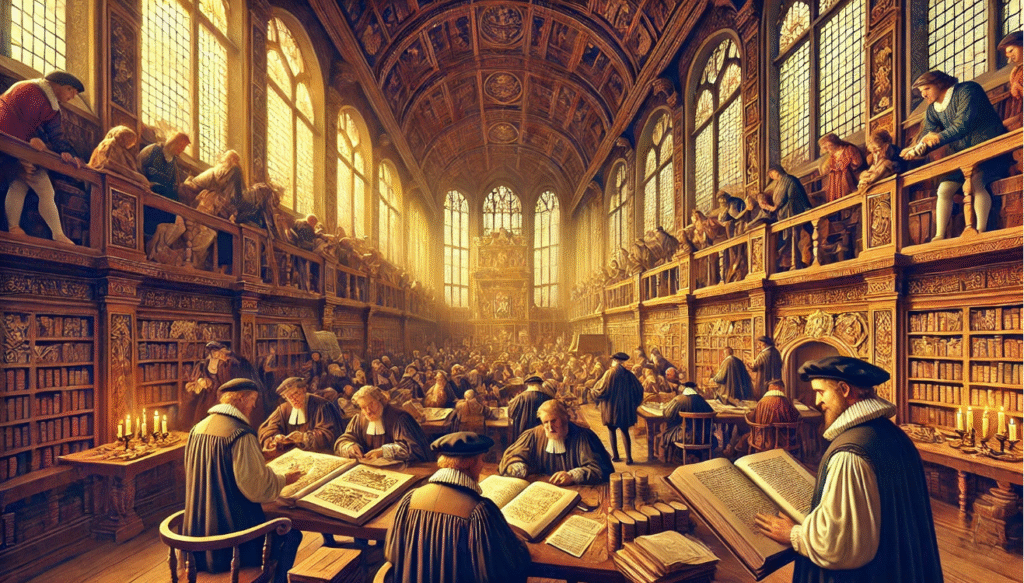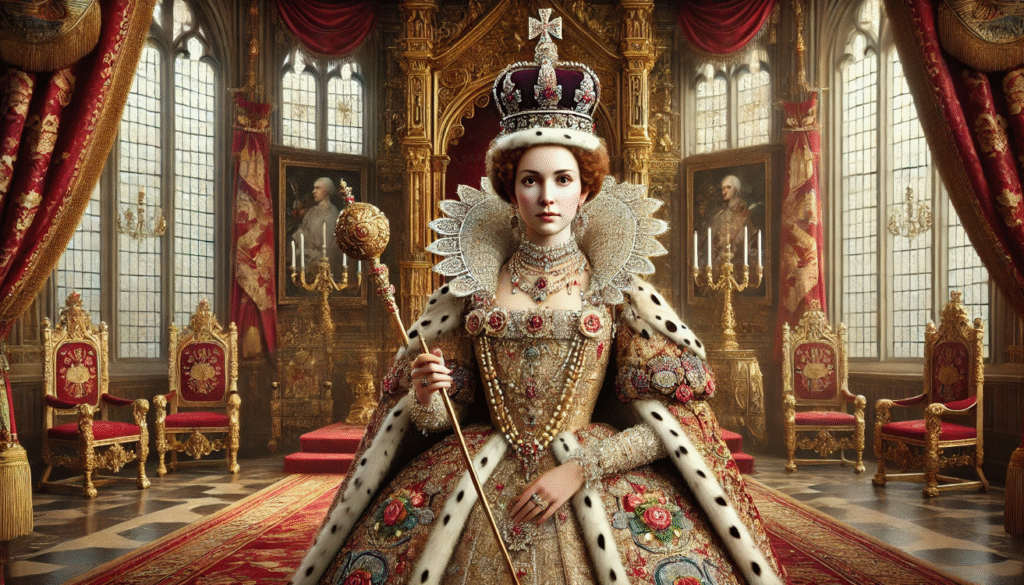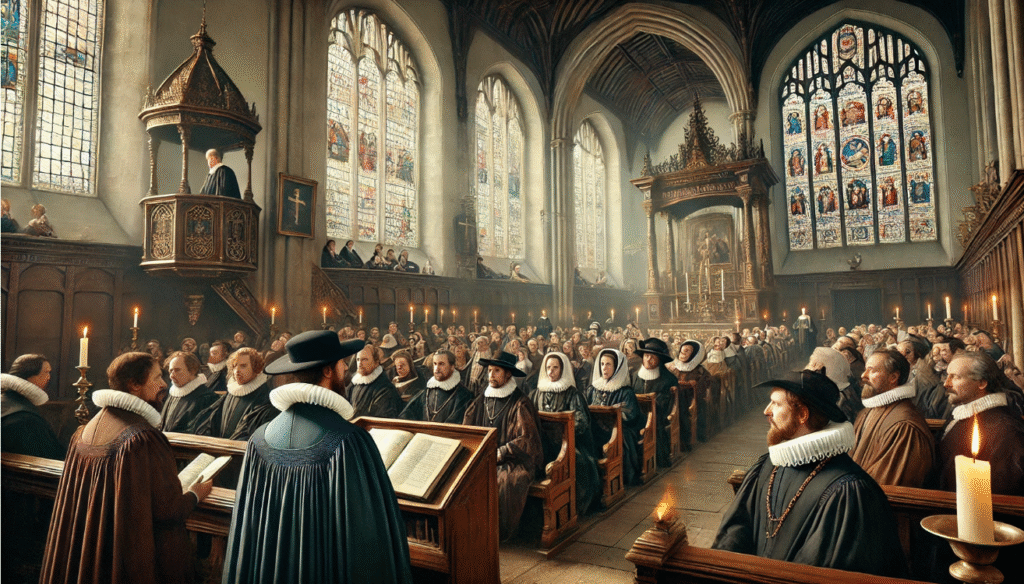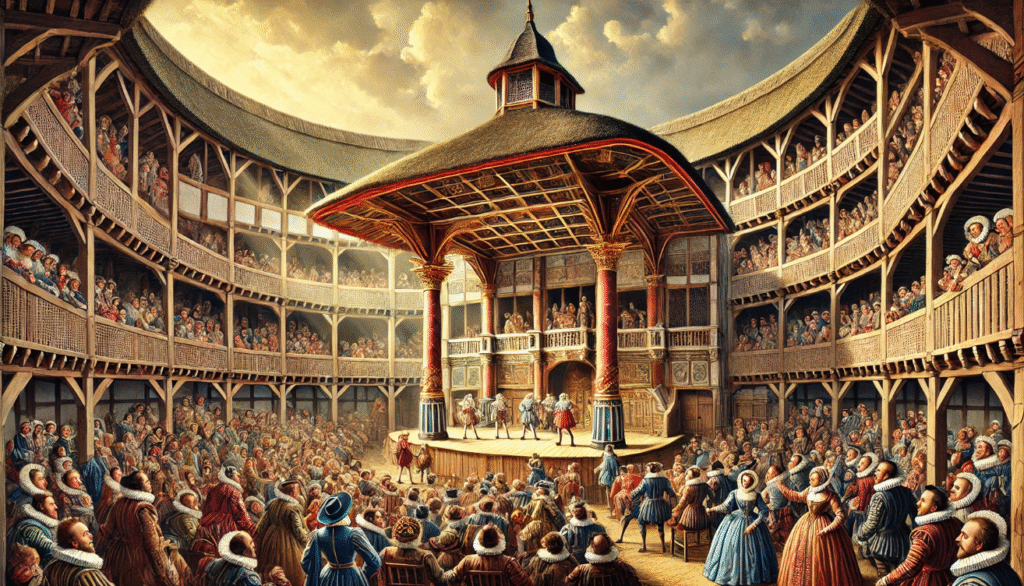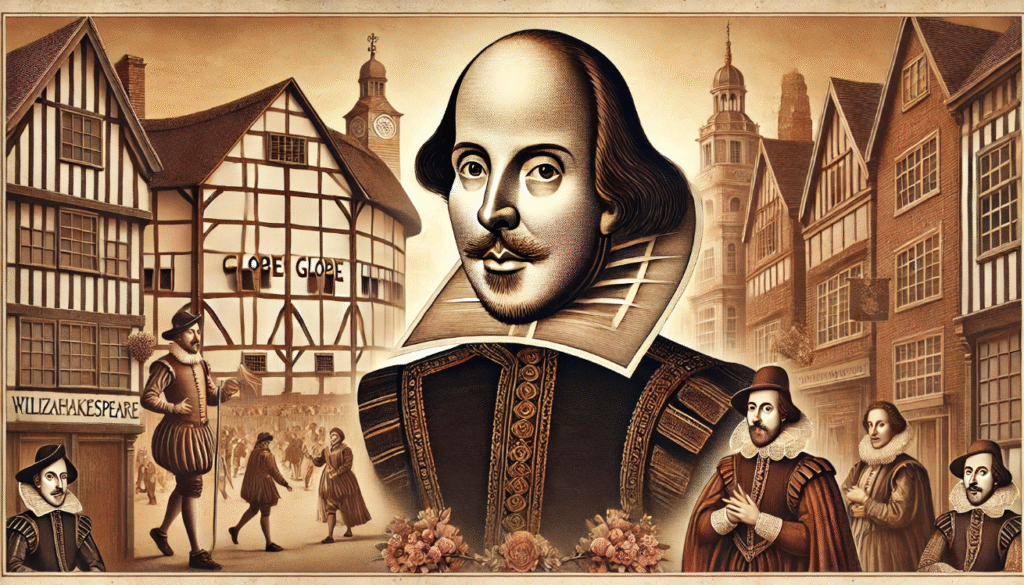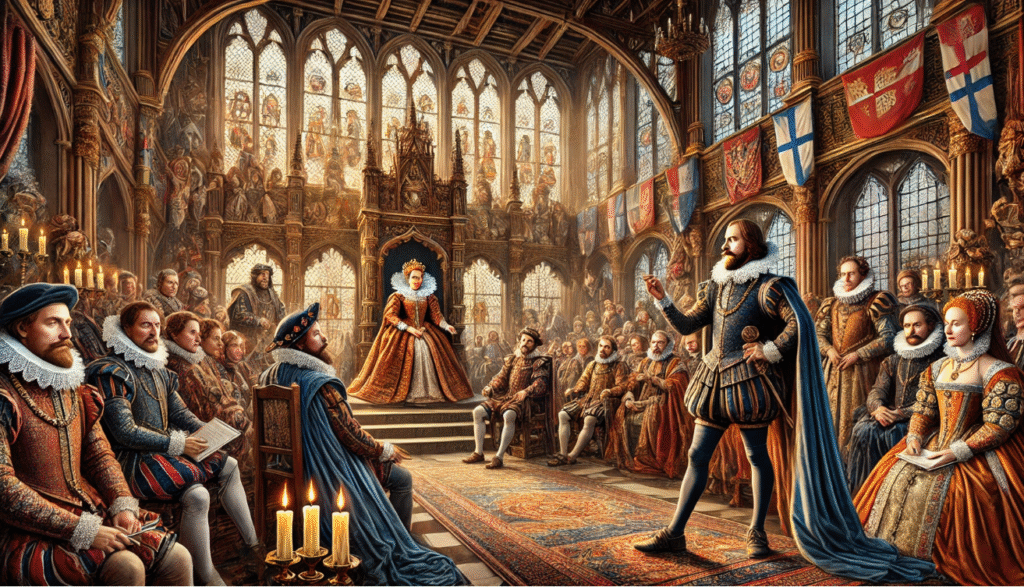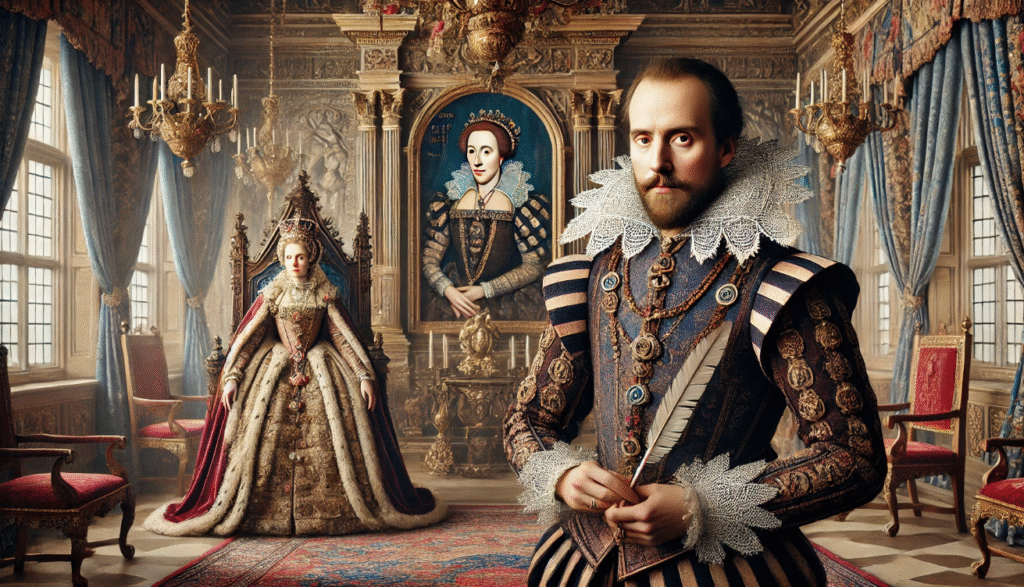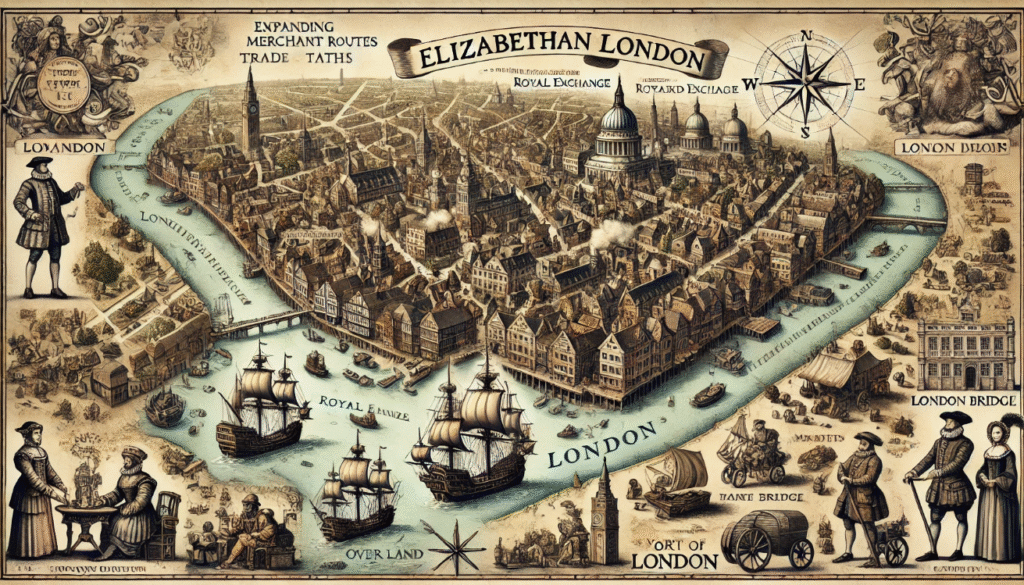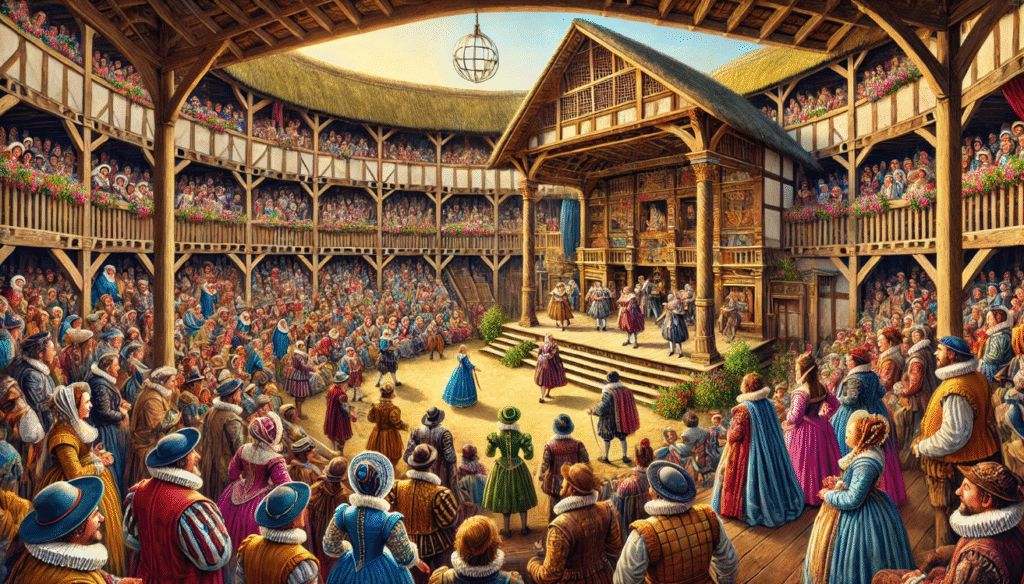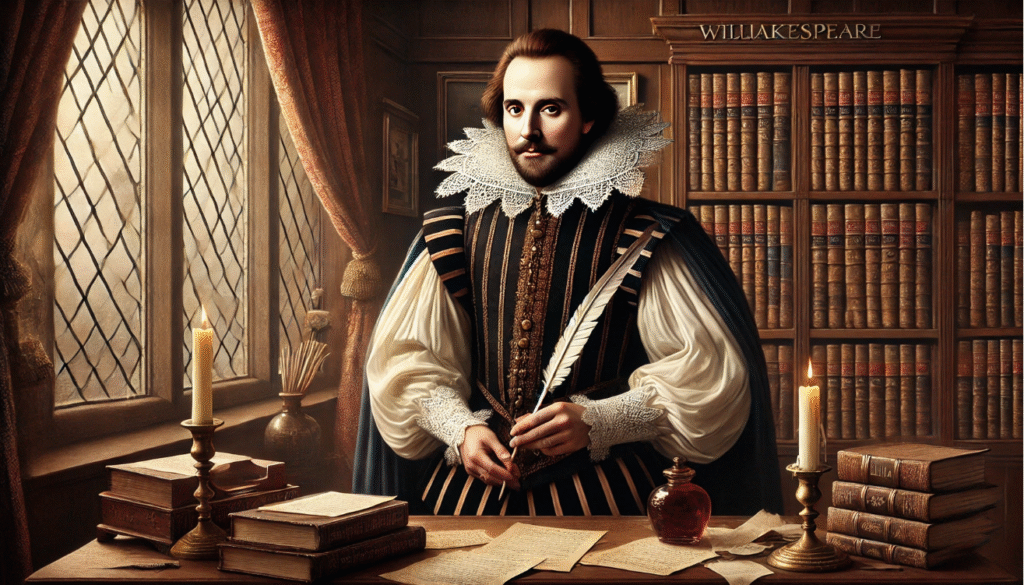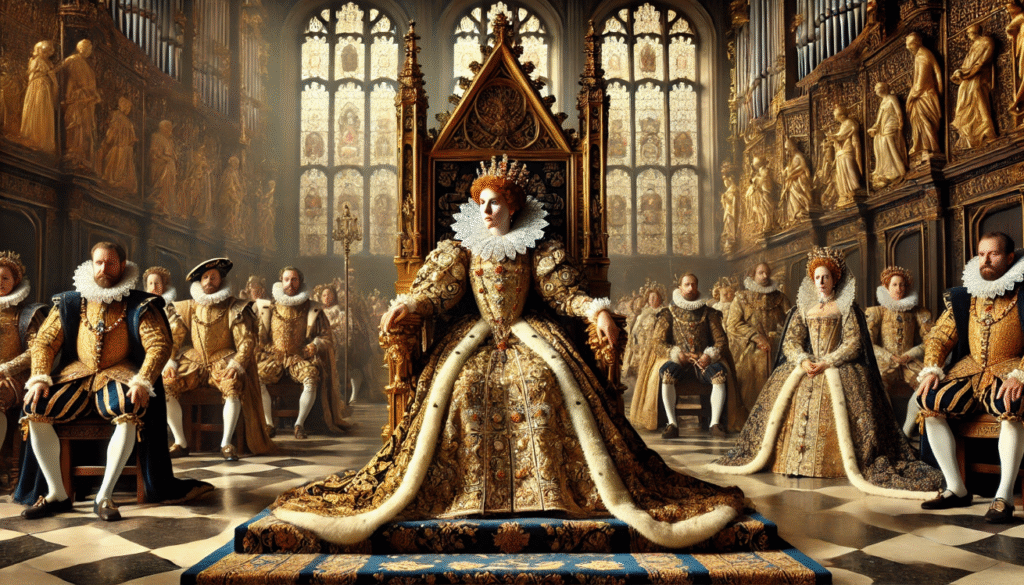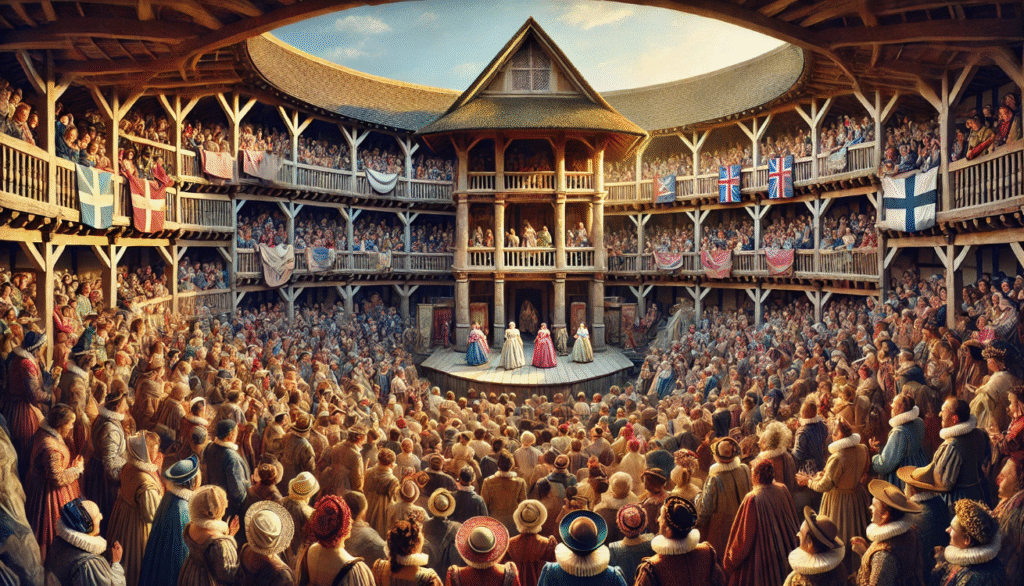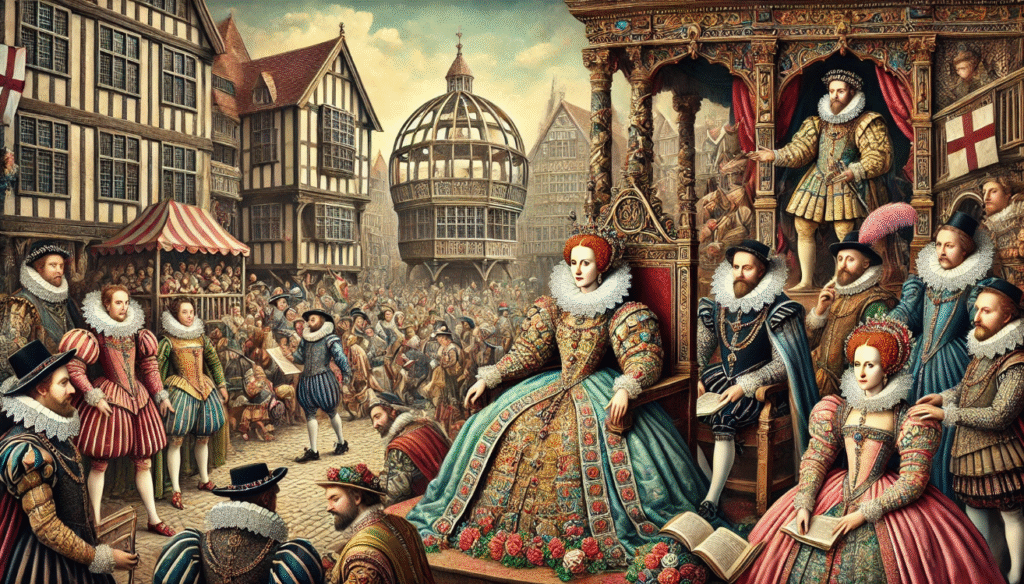The English Renaissance was a cultural and intellectual movement that took place in England during the 15th and 16th centuries. It was a time of great artistic and literary achievement, as well as scientific and philosophical advancements. The Shakespeare and the English Renaissance saw a renewed interest in classical learning and the arts, which had a profound impact on English literature, drama, and music. William Shakespeare is often considered one of the most important figures of the English Renaissance. He was a playwright, poet, and actor who is widely regarded as the greatest writer in the English language.
Shakespeare’s works hold a significant place in literary history as they serve as a bridge between medieval traditions and modern thought, reflecting the dynamic changes of his time. Through his plays and poetry, Shakespeare and the English Renaissance captures the complexities of the human experience, the shifting social and political landscape, and the evolving cultural and intellectual movements of the Renaissance. His work not only reflects the historical context of his time but also continues to resonate with audiences today, making him a timeless and influential figure in literature.
The English Renaissance: A Contextual Overview

The English Renaissance refers to a cultural and artistic movement that took place in England during the late 15th to early 17th century. It was marked by a revival of classical learning, humanism, exploration, and artistic innovation. The period saw a renewed interest in the literature, art, and philosophy of ancient Greece and Rome, as well as a surge in exploration and trade. This era also witnessed the works of famous figures such as William Shakespeare, Christopher Marlowe, and Sir Francis Bacon. The English Renaissance had a profound impact on the development of English literature and culture, and its influence can still be seen today.
The transition from the medieval worldview to Renaissance humanism was a significant shift in thought and culture. During the Middle Ages, the dominant worldview was heavily influenced by the Church and focused on the afterlife and the divine order of the universe. However, with the rise of humanism during the Renaissance, there was a renewed interest in the potential of human beings, their capabilities, and their place in the world. Literature and theatre played a crucial role in this cultural awakening. Writers and playwrights began to explore themes of individualism, human potential, and the human experience in their works.
Shakespeare as a Product of His Time

Shakespeare was born and raised in Stratford-upon-Avon during the Renaissance period in England. His upbringing was in a middle-class family, and he received a solid education at the local grammar school. This education would have exposed him to classical texts and literature, which would go on to influence his writing and plays. During Shakespeare’s time, England was under the rule of Queen Elizabeth I and later King James I. The society of the Elizabethan and Jacobean era played a significant role in shaping Shakespeare’s themes, as his plays often reflected the political and social issues of the time.
Bridging Medieval and Modern Thought in Shakespeare’s Works
Themes of Humanism and Individualism

Renaissance humanism heavily influenced Shakespeare’s exploration of human nature, morality, and free will in his works. Characters like Hamlet, Macbeth, and Prospero demonstrate these themes through their introspection, ambition, and wisdom, respectively. Shakespeare delves into the complexities of human experience, grappling with the moral dilemmas and existential questions that arise from the exercise of free will. Through his characters, he invites readers and audiences to ponder the nature of humanity and the choices that shape our lives.
Classical and Medieval Influences
Shakespeare’s use of classical sources, such as Plutarch’s Lives and Ovid’s Metamorphoses, demonstrates his deep knowledge and understanding of ancient literature. By drawing on these sources, he was able to infuse his plays with timeless themes and characters that continue to resonate with audiences today. Additionally, Shakespeare’s retention of medieval traditions, such as morality plays and allegorical elements, allowed him to tap into the rich storytelling traditions of the past. This blending of classical and medieval influences in his work added depth and complexity to his plays, making them both intellectually stimulating and emotionally compelling for audiences of his time and beyond.
Exploration of Power, Politics, and Society
The medieval hierarchy was based on a rigid social structure with kings and nobles holding all the power, and the majority of the population being peasants with very few rights. In contrast, the Renaissance brought about a shift in governance and individual rights, with a focus on humanism and the importance of the individual. This period saw the rise of republics and the concept of citizenship, as well as the idea of natural rights and the social contract. Political intrigue in works such as Julius Caesar and Richard III reflects the power struggles and complexities of governance during these times.
The Evolution of Tragedy and Comedy

The combination of medieval morality and Renaissance sophistication in plot and character development can be seen in the works of Shakespeare, particularly in plays such as Othello and Much Ado About Nothing. In Othello, the tragic flaws of the main characters, particularly Othello himself, reflect the medieval belief in the consequences of moral failings. On the other hand, Much Ado About Nothing showcases Renaissance sophistication through its witty banter and complex character development, merging the morality of the past with the sophistication of the future. This combination creates a rich and dynamic storytelling experience that continues to captivate audiences to this day.
Innovation in Language and Style
Shakespeare’s contribution to the evolution of the English language is significant. He not only introduced countless new words and phrases to the language, but he also played a major role in standardizing grammar and syntax. His use of iambic pentameter and poetic techniques helped to shape the way English is spoken and written today. Additionally, his work drew from medieval poetic traditions while incorporating inventive wordplay, creating a rich and diverse vocabulary that continues to influence the language.
Shakespeare’s Reflection of Renaissance Ideals

Shakespeare’s characters embody Renaissance ideals of curiosity, self-awareness, and intellectual exploration through their complex and introspective nature. They often grapple with existential questions and seek to understand themselves and the world around them. Characters like Hamlet and Macbeth, for example, demonstrate a deep curiosity about human nature and the consequences of their actions. Additionally, Shakespeare’s plays often explore themes of knowledge and intellectual discovery, with characters like Prospero in “The Tempest” embodying the Renaissance ideal of the learned and wise individual. Overall, Shakespeare’s characters reflect the Renaissance fascination with self-discovery and intellectual inquiry, making them emblematic of the era’s ideals.
The impact of his work on later literary movements and modern thought is quite significant. His ability to transcend his time and remain relevant to modern audiences speaks to the timeless themes and universal truths present in his writing. Many later literary movements and modern thought have been influenced by his work, with his ideas and themes continuing to inspire and resonate with readers and thinkers today. His impact on literature and thought has been substantial, and his legacy continues to shape and enrich the literary and intellectual landscape.
Legacy of Shakespeare in the English Renaissance

Shakespeare played a crucial role in elevating the status of English theatre and literature during the Elizabethan era. His works, including plays like “Hamlet,” “Macbeth,” and “Romeo and Juliet,” have had an enduring influence on global literature, art, and philosophy. Shakespeare’s innovative use of language, complex characters, and universal themes have cemented his place as one of the greatest playwrights and poets in history. His contributions have elevated the status of English literature and theatre to a level of international admiration and significance.
Shakespeare is considered the embodiment of the English Renaissance spirit for several reasons. Firstly, his works reflect the spirit of humanism and intellectual curiosity that characterized the Renaissance period. His exploration of complex human emotions and his deep understanding of the human condition showcased the Renaissance’s focus on individualism and the inner workings of the mind. Additionally, Shakespeare’s plays and poetry encompassed a wide range of themes, from love and passion to power and politics, reflecting the diverse interests and intellectual pursuits of the Renaissance era. His use of language and mastery of the English language also exemplified the period’s emphasis on the arts and literature as a means of self-expression and creativity.
Shakespeare’s works reflect the transition from medieval to modern thought through his exploration of complex human emotions, the questioning of traditional beliefs and values, and the portrayal of individuality and self-awareness. His plays often grapple with the tension between the old and the new, and his characters navigate the changing social and political landscapes of the time. Shakespeare’s pivotal role in the English Renaissance is evident in his influence on the development of English literature, language, and culture. His innovative use of language, his exploration of human nature, and his ability to capture the essence of the human experience have solidified his place as a central figure in the literary and intellectual movement of the Renaissance. Shakespeare’s contributions to culture and human understanding are timeless.

